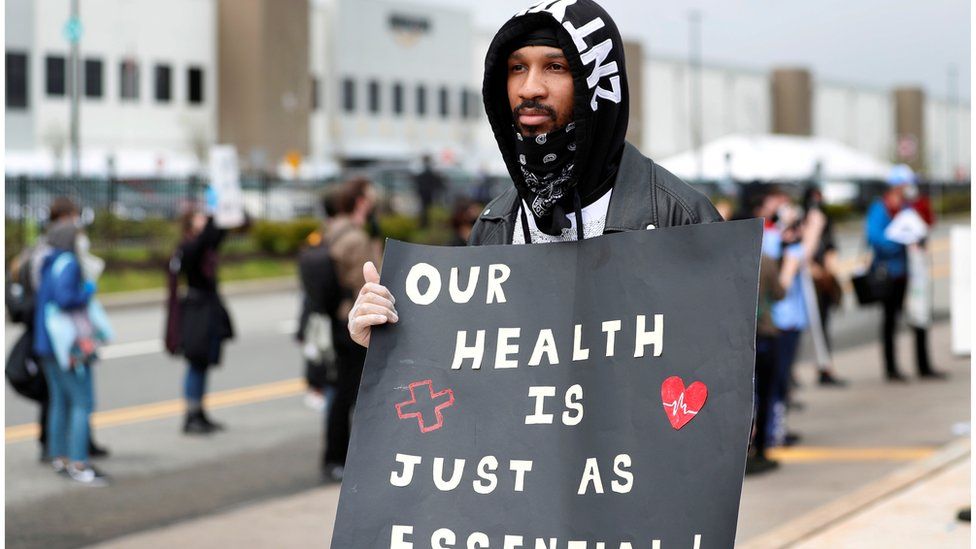Amazon sues NY amid threat of virus labour lawsuit
- Published

Amazon has sued New York's top prosecutor over her probe of the firm's response to Covid-19 safety concerns, including its firing of workers who spoke out with concerns.
The company said Attorney General Letitia James was applying "an inconsistent and unfair" standard for workplace safety to Amazon.
It asked the court to stop her inquiry.
Ms James called the move "a sad attempt to distract from the facts and shirk accountability".
"We will not be intimidated by anyone, especially corporate bullies that put profits over the health and safety of working people," she said in a statement.
"We remain undeterred in our efforts to protect workers from exploitation and will continue to review all of our legal options."
Worker retaliation
Ms James launched her investigation last spring, after a small protest by a group of workers at a warehouse in Staten Island, New York, and the firing of organisers, including Christian Smalls.
At the time, she said it had raised concerns about illegal retaliation, noting that the state had codified the right to organise in its law.
In its complaint, Amazon said Ms James lacked oversight over the workplace issues, which it said are governed by national labour laws.
It also accused her of ignoring the steps the company has taken to protect its workers, pointing to a 30 March city inspection inspection of its warehouse in Staten Island, New York, which concluded that "there were absolutely no areas of concern".
The rate of infection among Amazon staff in New York is half that of the area's general population, it added.
It is unusual for companies to file pre-emptive lawsuits to block potential regulatory actions.
But Amazon said Ms James had threatened to sue unless the company met a list of demands, including reducing production speeds, subsidised bus service and reinstating Mr Smalls.
"Amazon cannot accept the OAG's attempt to subject Amazon to an inconsistent and unfair standard for workplace safety that is pre-empted by federal law and assigned to the primary jurisdiction of federal regulators - especially when the underlying facts show that Amazon has done an exemplary job responding to an unprecedented global pandemic," the firm said in the lawsuit, filed in federal court in Brooklyn.
In the complaint, Amazon, which has a reputation for being aggressive against instances of workplace activism, said that it fired Mr Smalls for violating requests that he quarantine after being exposed to the virus.
Mr Smalls has pledged to continue protesting until better protections are in place. In November, he filed a class action lawsuit seeking damages for black and Hispanic workers.
Related Topics
- Published10 February 2021
- Published31 March 2020
- Published3 April 2020